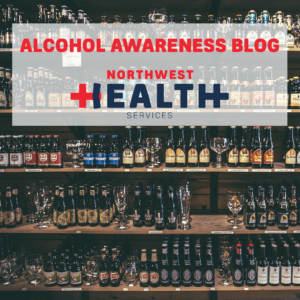 Alcohol Awareness Month
Alcohol Awareness Month
In honor of Alcohol Awareness month, we have gathered some important information and facts about Alcohol usage. Now, going out for a drink might not be harmful to your body, but if you drink excessively then you might consider reading this entire blog.
Facts About Alcohol
Here are some important facts to know about alcohol in the United States:
- 88,000 deaths are attributed to excessive alcohol use every year.
- Alcoholism is the 3rd leading lifestyle-related cause of death in the nation.
- Excessive alcohol use is responsible for 2.5 million years of potential life lost each year, or an average of about 30 years of potential life lost for each death.
- Up to 40% of all hospital beds in the United States (except for those being used by maternity and intensive care patients) are being used to treat health conditions that are related to alcohol consumption.
Diseases Caused From Excessive Alcohol Usage
Over time, excessive alcohol usage both in the form of heavy drinking or binge drinking, can lead to numerous health problems, chronic diseases, neurological and social problems, including but not limited to:
- Dementia, stroke and neuropathy
- Cardiovascular problems, including myocardial infarction, cardiomyopathy, atrial fibrillation and hypertension
- Social problems, including unemployment, lost productivity, family problems, violence including child maltreatment, fights and homicide
- Unintentional injuries, such as motor-vehicle traffic crashes, falls, drowning, burns and firearm injuries.
- Increased risk for many kinds of cancers, including liver, mouth, throat, larynx (voice box) and esophagus
- Liver diseases, including fatty liver, alcoholic hepatitis, cirrhosis
- Gastrointestinal problems, including pancreatitis and gastritis
- Alcohol abuse or dependence – alcoholism.
Areas of The Body Affected By Alcohol
These are the top 5 areas of the body affected negatively by drinking alcohol:
- Brain/Central Nervous System – alcohol affects the way you process information and disrupts the way your neurotransmitters communicate with the other areas of your body.
- Heart – Prolonged alcohol consumption, or drinking too much on one occasion, can cause problems with your heart. Arrhythmias, otherwise known as irregular heart beats, can be caused from drinking. Also high blood pressure, a stroke or cardiomyopathy (weakening of heart muscle.)
- Pancreas – alcohol causes your pancreas to produce toxic substances, leading to pancreatitis which is the unsafe swelling and inflammation of blood vessels in the pancreas. This affects your digestive system.
- Liver – heavy drinking, even on a weekend or vacation, can cause your body to build up fat around your liver. This fat impairs normal liver functioning and can lead to dangerous inflammations.
- Immune System – alcohol hinders your immune system from warding off infections and diseases. Frequent heavy drinking can increase your chances of acquiring diseases like pneumonia and tuberculosis. Drinking can weaken your immune system for up to 24 hours after intoxication.
Find Help
If you or someone you know is a heavy alcohol user, you might consider some of the following resources online:
O National Council on Alcoholism and Drug Dependence, Inc. (NCADD): www.ncadd.org
o Alcoholics Anonymous (AA): www.aa.org
o Al-Anon Family Groups: www.al-anon.alateen.org
o National Institute on Alcohol Abuse and Alcoholism (NIAAA): www.niaaa.nih.gov
o College Drinking: Changing the Culture (NIAAA): www.collegedrinkingprevention.gov
o Stop Underage Drinking: Portal of Federal Resources: https://www.samhsa.gov/underage-drinking-topic
o Centers for Disease Control and Prevention: Alcohol and Public Health: www.cdc.gov/Alcohol
o Center on Alcohol Marketing and Youth: www.camy.org
o Alcohol Policy Information System (APIS): www.alcoholpolicy.niaaa.nih.gov/UnderageDrinking.html
If you would like to see a doctor due to alcohol usage, you can call us at (816) 271-8261 or by visiting us online at www.nwhealth-services.org.
Have a wonderful day!



Corey Myers is the Outreach & Enrollment Specialist for Northwest Health Services and works with healthcare professionals to provide important health information.
